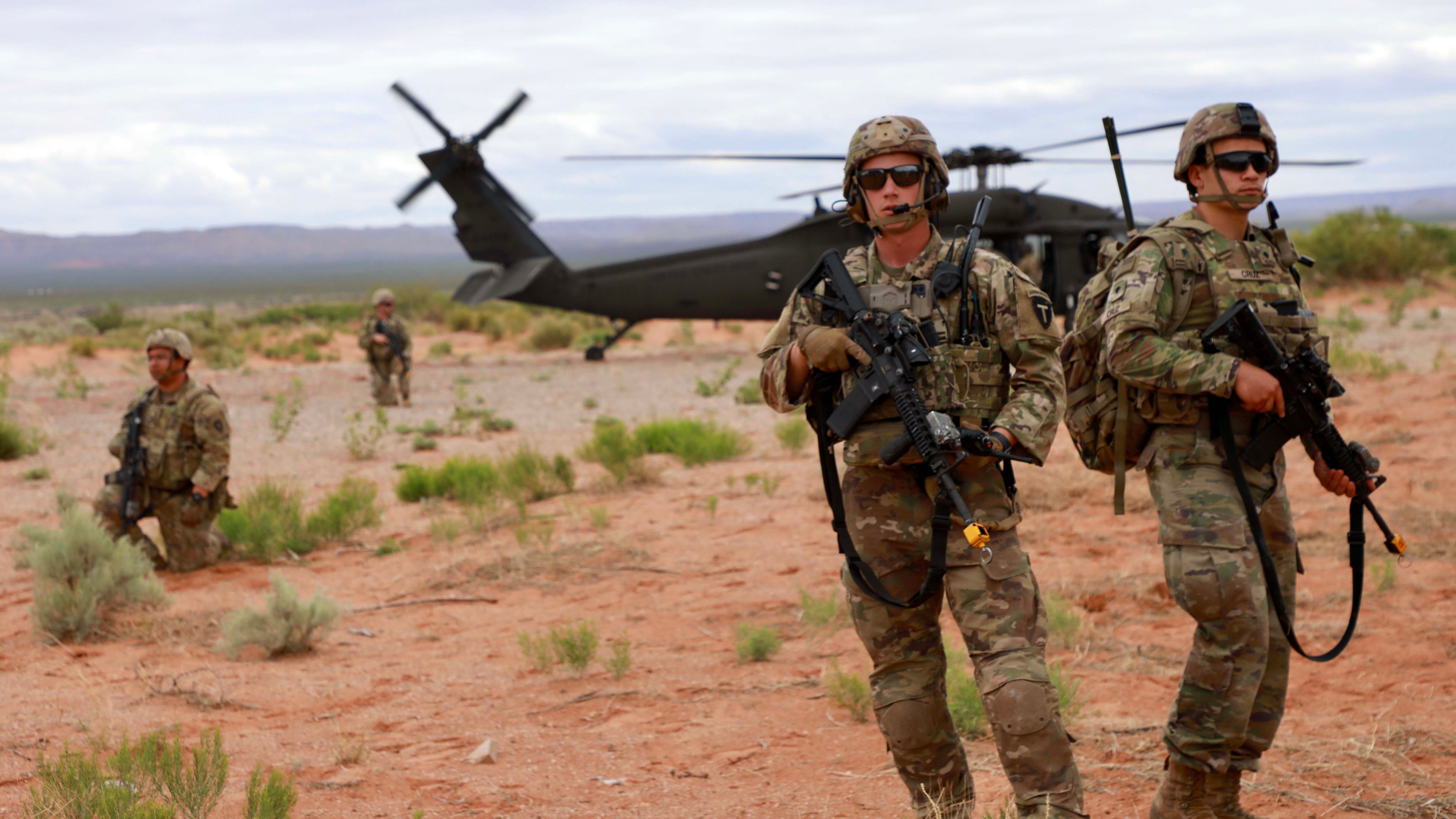Brunson: Fight, Win and Thrive
Brunson: Fight, Win and Thrive

Faced with changing adversaries and an increasingly complex operating environment, the Army must make sure soldiers are ready to fight, win and not just survive, but thrive, a senior Army leader said.
Speaking during the 2023 Holistic Health and Fitness Symposium at Fort Eustis, Virginia, Lt. Gen. Xavier Brunson, commander of I Corps, said the Army’s transformation for 2030 and beyond doesn’t just involve equipment and new technology.
“The stuff doesn’t matter if the people aren’t there. The stuff doesn’t matter if the people aren’t ready,” Brunson said. “Soldiers are facing the most significant operational environments of all time.”
As the Army modernizes its doctrine, force structure and equipment, its Holistic Health and Fitness system is a key part of modernizing how soldiers train, fuel and prepare, Brunson said.
“Current and future warfare is evolving, and so must our Army,” he said during the symposium in late April that was sponsored by the Army Center for Initial Military Training and Army Training and Doctrine Command. “Every domain will be contested. It will require us to develop a competitive advantage.”
Since the earliest days of America, the Army has “always been about our people,” Brunson said. That’s why the Army must not only evolve its equipment and tactics, “we’ve also got to modernize our people,” he said.
The Army’s Holistic Health and Fitness, or H2F, is a comprehensive health and fitness system designed to build soldiers’ physical, spiritual, mental, sleep and nutritional readiness through performance professionals, programs, facilities, equipment and education.
One of the most visible investments of H2F is the embedded performance teams. These teams, consisting of service members, Army civilians and contractors, provide injury prevention and human performance optimization expertise to units. They include physical therapists, registered dietitians, occupational therapists, certified athletic trainers, cognitive performance specialists and strength and conditioning coaches.
So far, 28 brigades have embedded H2F performance teams, with 12 more brigades being fielded this year, according to the Army. Plans call for the Army to field at least 10 teams each year through 2030, with a goal of 110 brigades fielded, according to the Army.
The holistic approach of H2F aims to build “truly enduring resiliency” in soldiers, Brunson said. “Soldiers face stressors that are ubiquitous,” he said. “They are ever-present in their lives. H2F is more than a thing that’s physical. H2F is a system to care and empower and equip soldiers to take charge of their own health and their own well-being.”
Sgt. Maj. of the Army Michael Grinston, who also spoke at the symposium, urged leaders to embrace H2F and set an example for their soldiers.
For example, leaders should be at physical fitness training with their soldiers, Grinston said “Where are you at 6:30?” he said, referring to morning unit physical fitness training. “You don’t have to lead it, you don’t have to be the first one up front, you just have to be there. You have to be present.”
The same applies to dining facilities, Grinston said. “Where do your soldiers fuel their bodies? Where are you?” he said. Leaders often talk about the importance of nutrition, but they don’t see firsthand where their soldiers eat, he said.
Sleep is another important area. Army leaders often consider it “this badge of honor” when they don’t sleep, Grinston said. “You’re making life-or-death decisions,” he said. “The less sleep you have, you’re not using the full capacity of your brain. You’re sleep-deprived, it’s like having a couple beers and you’re going to make life-or-death decisions?”
Developing fit, healthy and ready soldiers is critical for the Army, Grinston said. “You never know that you might go to war tomorrow,” he said. “That’s your purpose.”

